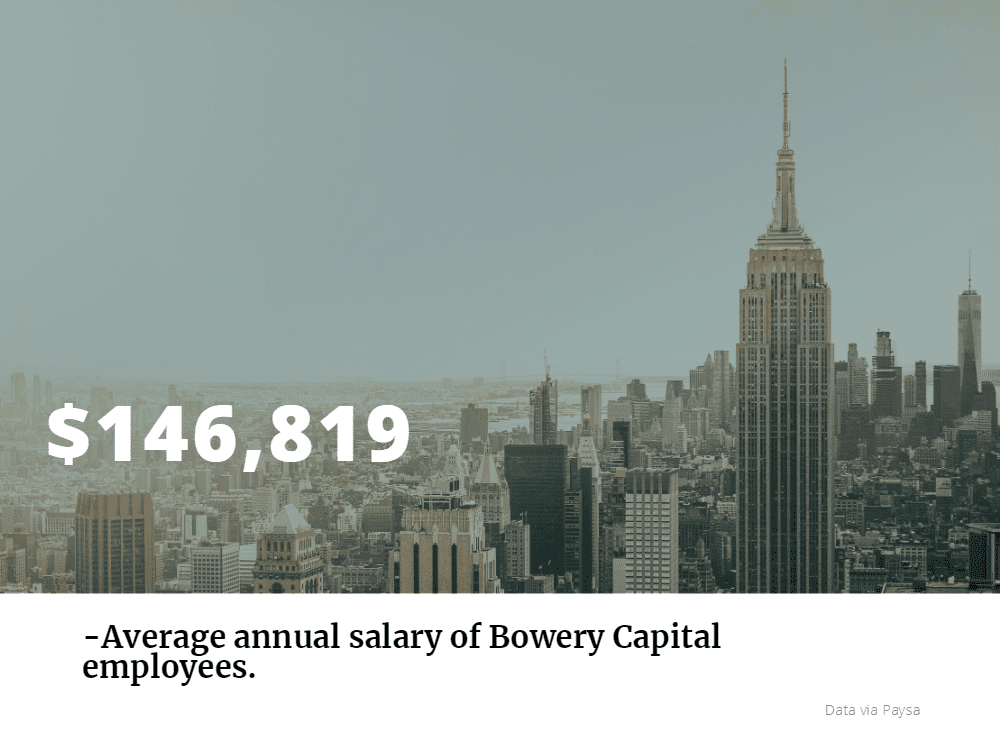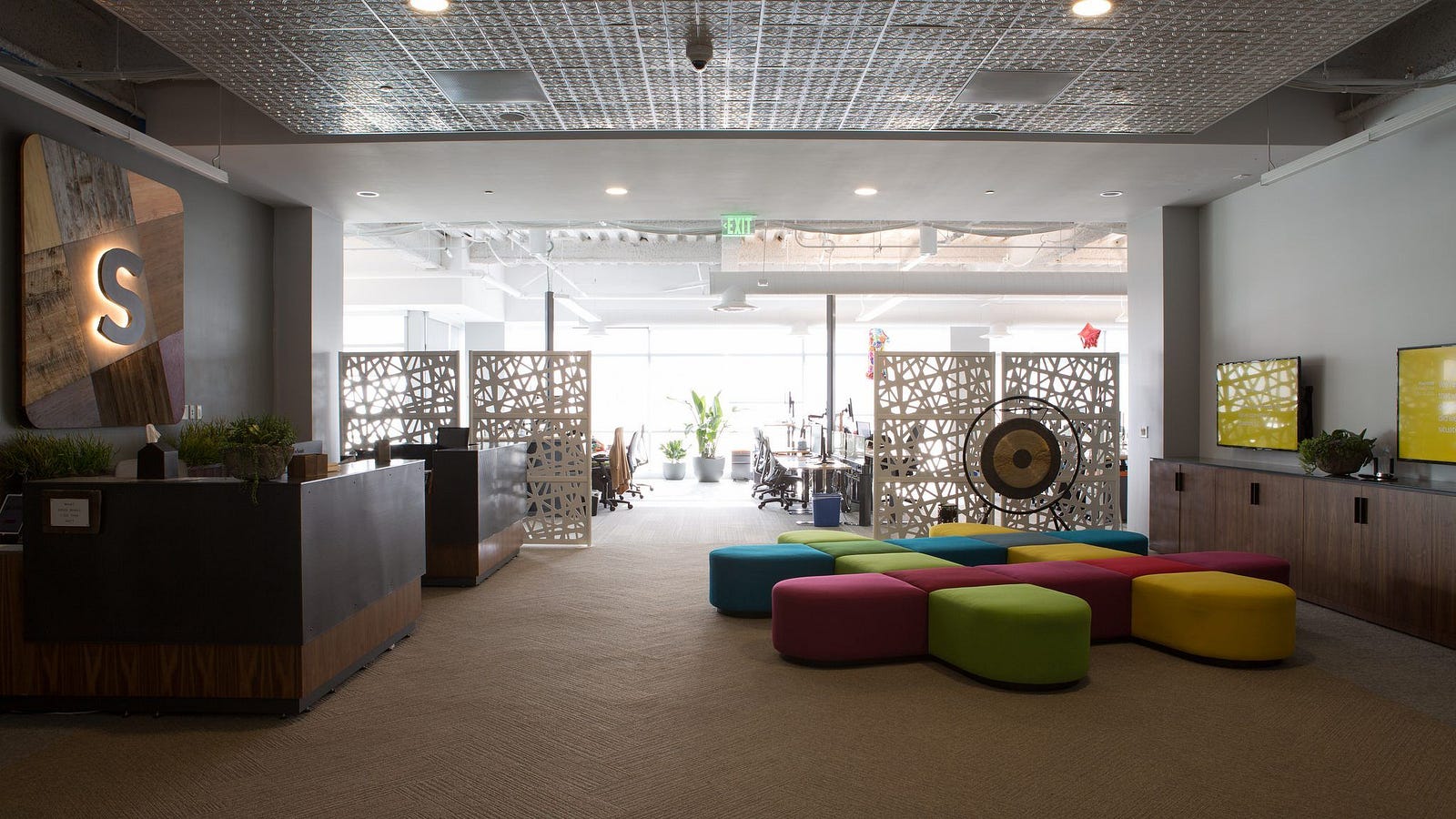MBA Job Profile: Technical Program Manager

Most successful businesses involve many moving parts. To coordinate personnel and logistics in a rapidly evolving technological landscape requires large teams of individuals and a solid technical background. This is precisely where technical program managers come in handy: they steward all aspects of a program from initiation to implementation.

What is a Technical Program Manager?
Technical program managers handle company technical needs, leading teams in product development and software implementation. They ensure that deadlines are met, and any technical issues are swiftly resolved. This requires the marriage of two traditionally unrelated skill sets—personnel management and technical proficiency.
Since every business has unique technical needs, the specific skills required may vary from company to company. However, there are certain elements that hold true regardless of a company’s specific focus. The most important attributes of an aspiring technical program manager are an acute intuition for leadership, the ability to adapt, and a keen sense of the inherent logistical needs that arise from the combination of these two areas.
Technical program managers aren’t just required to oversee projects; they must also be diligent in tracking issues within the programs they manage and successfully troubleshooting them. They are also required to utilize their expertise to assess the large-scale technical needs of a company and initiate programs accordingly. This requires the identification of all action items necessary for a program’s success as well as schedule and budget development.
Technical Program Manager Salary Expectations
According to Payscale, the median income for technical program managers is $121,627, while Glassdoor cites the average salary at $125,219. Generally speaking, experience affects pay. Technical program managers with less than one year experience earn around $90,000. Those who have been working for over 20 years earn approximately $132,000.

Infosec, an institution that offers educational resources focused on cybersecurity, offers different statistics that are less optimistic. It quotes the national average salary for technical program managers as $89,000 a year. Less experience managed often make $71,000. Senior-level managers typically see around $99,000 per year. Those in urban areas are likely to receive a higher salary than those in less densely populated areas.
However, Infosec is quite optimistic about the future for aspiring technical program managers. It estimates that number of positions will grow by roughly 15-20 percent over the next eight years.
Getting Started
Becoming a technical program manager means having at least a bachelor’s degree in fields like management, business administration, or computer science. Some businesses might hire someone who does not have a bachelor’s degree if they do have prior experience working in a related field. Naturally, if you have both experience and a relevant bachelor’s degree, or an advanced degree, you will stand out to potential employers.
Typically, this means earning an education in an engineering school, rather than a business school. However, business schools offering dual degrees can help provide a path for future technical program managers.
For instance, Harvard Business School offers a MS/MBA option. Earning an MS/MBA from the world’s most well-known academic institution means having world-class career preparation, leading to a similarly world-class career. Harvard MBA graduates, in general, can expect an average annual salary of around $140,000—and that’s before one takes signing bonuses and other benefits into account.

Many of the world’s best business schools, like HBS, offer special dual degree MBA programs for hopeful technical program managers.
Top MBA Recruiters: Bowery Capital

Founded in 2013, NYC-based Bowery Capital is an early-stage venture capital investor that primarily backs SaaS (software-as-a-service) B2B (business-to-business) startups that develop innovative software that allows companies to optimize the role of a continually changing technological landscape.
Bowery Capital is a relatively small firm with less than 50 employees and it has three groups of four individuals at the center of its operations. These groups are the Core Team, the Venture Partners, and the Revenue Council.
Bowery Capital doesn’t just invest in companies—it also provides them the right tools to succeed. It helps these companies build a customer base, provides them with a “robust software infrastructure” to enable growth, and offers crucial support in finding the right talent. This support coupled with the expertise of a combined 50 years of collective experience is what makes Bowery Capital stand out to young companies on the hunt for potential investors.
Landing a Bowery Capital Career
Considering the kinds of startups in which Bowery Capital specializes, any experience that a job applicant might have in software, digital marketing, digital media, online advertising, product management, or social media would give said applicant an edge in the hiring process. Another valuable asset is a keen sense for possible areas of growth within the tech industry.
It should be noted that at the time this article was written, there are no job openings at Bowery Capital. While the company does offer internships for MBA and undergraduate students, there appear to be no openings for those positions.
Working at Bowery Capital
Since the firm is relatively young and small, it is difficult to say much about Bowery Capital’s workplace culture. Its website lists a 12-member team and Glassdoor reviews from former employees suggest that Bowery Capital has a regular stream of interns working there on a part-time, short-term basis.

According to Paysa, Bowery Capital employees make an average annual salary of $146,819, with $97,852 marking the 25th percentile and $179,767 at the 75th percentile. However, this data does not indicate the average salaries by position, so it is unclear how much an employee who recently graduated with an MBA would make.
Life at Bowery Capital
Bowery Capital has not published any employee demographics or statements about their workplace culture, but all reviews from former employees on Glassdoor are overwhelmingly positive. In particular, they are nearly unanimous in their praise for a positive atmosphere and the expertise of their supervisors. The only con was from a former summer intern who mentioned that they had not been paid for their work at the firm.
Paysa also offers some helpful statistics on workplace demographics. Fifty-six percent of Bowery Capital’s employees are white, while the rest declined to offer this information. About 89 percent are male with the remaining 11 percent declining to disclose their gender. However, of the 12 team members listed on the company’s website, 5 are women. Additionally, the Paysa information is based on fewer than 20 users, so both of these data sets are in all likelihood only a small portion of Bowery Capital’s workforce.
Bowery Capital only has one office in New York City, but they invest in companies all over the country, especially on the West Coast, which as you may have heard has a thriving community of technological innovators.
While half of the Bowery Capital team is based in New York City, four are based in San Francisco and two are based in Boston. With this in mind, it seems likely that a Bowery Capital career would likely be based in New York City with potential opportunities for travel.
Top MBA Recruiters: MetLife

Founded in 1868, MetLife—one of the world’s largest providers of insurance, annuities, and employee benefit programs—currently serves over 90 million customers in over 60 countries, including more than 90 of the 100 Fortune 500 companies. With such a rich history, it’s fairly easy to see why MetLife careers can be so appealing for MBA candidates and recent grads.
What MBAs Love About MetLIfe
According to Glassdoor, associates (a common entry-level job for MBA graduates) can pull an average salary of $90,522, with another $26,781 in cash bonuses. This figure is well above the national insurance associate annual average of $42,849; a 47 percent difference in salary alone.

Another one of the main perks of working at MetLife is the variety of great benefits. MetLife offers health, dental, vision, disability, accident, auto, home, life, and even pet insurance. These insurance plans are also adaptable for MetLife employees who regularly travel internationally.
Legal services are also provided through MetLaw® for a wide range of potential legal issues, such as will and estate planning documents, real estate, traffic defense, and identity theft. MetLaw®, provided by Hyatt Legal Plans (a MetLife company), is a network of over 15,000 lawyers, with an average of 25 years of experience per attorney.
Working at MetLife
MetLife prides itself on offering employees training and development opportunities, allowing them to realize their full potential. MetLife’s international profile also offers employees the opportunity for global mobility and maximum geographic versatility.
The company actively fosters diversity through two distinct mechanisms. The first of which factors recruiting traditionally underrepresented minority groups. For example, the Global Women’s Initiative seeks out qualified female candidates and offers career development. The Veteran’s Initiative seeks to provide positive transition from military service to working life. And the People with Different Abilities Initiative empowers those with disabilities, striving to find the differently-abled candidates positions in which they can thrive.
The other method in which MetLife encourages an inclusive environment is through employee networks, such as the Global Multicultural Professionals (to create awareness around culturally diversity and to support diverse talent), Local Inclusion Action Teams (which support diversity in specific offices), GLAM (a network for LGBTQ+ employees and allies), and Families at MetLife (created promote a culture of understanding for working families).
MetLife sponsors a number of different resources designed to facilitate a healthy work-life balance. Work-Life ASSIST specifically offers coaching and resources to help employees with their day-to-day lives. Childcare and Eldercare support similarly offers resources for working families. On top of all that, workplace flexibility and PTO are integral to the livelihood of a MetLife employee.

Volunteer efforts, like its partnership with Habitat for Humanity, makes working at MetLife more than just a traditional job.
Finding MetLife Careers
MetLife has several programs that might appeal to recent MBA grads. The Global Leadership Development program offers those with three-to-five years of related experience an opportunity to cross-train in three rotational assignments, in conjunction with advice from a designated mentor and other senior leaders.
MetLife also prides itself on being proactive with regard to recent technological advances. As is the case across most industries, candidates with tech backgrounds are in high demand.
Current MetLife Careers
Several positions that favor individuals with MBAs are currently available at MetLife. Most of these jobs are located within the U.S.. However, there are also openings in Mexico, Singapore, Hong Kong, and the UK.
Associate – Asset Management: Washington DC
Candidates with five-or-more years of experience in asset management or commercial real estate might be interested in this Washington DC position at MetLife Investments. This position focuses on managing and reporting on existing MetLife assets, while also exploring stable ways to expand MetLife revenue through investments.
Director – Global Customer Experience Strategy and Planning: New York City
This NYC position is best suited for those who specialize in customer experience. It requires eight-or-more years of professional experience in management consulting or strategy and program management. However, it is perfect for those with a global mindset and entrepreneurial disposition.
Top MBA Recruiters: Slack

In a job landscape continually dominated by newer tech companies, many MBAs have chosen a tech-focused specialty in their future career plans. Among the companies with the greatest need for MBA talent are those that are in growth stages. Founders of startups or early stage ventures are not always certain of how to manage the finer points of finance, marketing, project management, and accounting. As they grow, so does their need for strong MBA candidates to attend to these details.
Tech companies specializing in cloud-based collaboration software are always on the hunt for new talent. Slack, Inc., for example, is a leader in a growing field of these communication tools, and its popularity is soaring. Here is a look at how and why a Slack career might be a wise front-runner on your job wish list.
The History of Slack, Inc.
Founded in 2013, Slack is still a relatively young company. Its recent acquisition of the assets of Atlassian’s enterprise communication tools in 2018 speak to its prevalence. With Slack, employees can chat with one another and form discussions around topics and groups, all with the goal of making connection with your peers easier and more direct. All chats are searchable which makes for a dynamic storage system for companies of all sizes.
Seeking a Slack Internship?
On its University Recruitment site, Slack boasts that joining “fosters curiosity and celebrates creativity in an effort to help everyone—here at Slack and around the world—do their best work,” (which incidentally is one of the company’s motto’s.) By assigning interns to project teams that tackle real assignments, Slack prepares future employees for life at the company. Internships take place over a 12 or 16-week session during the summer or fall, with application deadlines in May and August. If an application is accepted, Slack offers a phone or video interview along with a take-home assignment before coming to a decision.

Those looking for an internship in the tech world should seek out Slack’s San Francisco headquarters.
Each intern is guided by a mentor, and can connect with executives and team leaders on a daily basis. Outside of the office responsibilities, Slack offers interns volunteer opportunities and networking as you build your resume. Currently, Slack’s San Francisco headquarters is seeking a Sales Strategy Intern. Ideally, candidates for the position will possess several years of prior management consulting experience, and will receive their MBA in 2020.
Applying for a Slack Career
One of Slack’s greatest assets is its diversity. According to a recent article in The Atlantic, “Slack has been outperforming other Silicon Valley companies, [in diversity of its workforce]. At Google, Facebook, and Microsoft, women hold between 19 percent and 28 percent of leadership positions … At Slack, women make up 31 percent of leaders and hold 34 percent of technical roles. Also … percentages of underrepresented minorities … are, in some cases, triple that of peer companies.”
This alone makes a Slack career appealing, but additional benefits are numerous. The company gives each employee $500 a year toward personal development, and $2000 annually toward professional development. One hundred percenter of health care expenses are covered for employees and their families, and $150 per month reimbursement for fitness/wellness memberships. Slack gives its workers “generous parental and new child bonding leave”.
Massage therapy, catered lunch and breakfast, game nights, and a ‘meeting-light’ culture round out the list of the company’s appealing perks.
Currently, there are close to 200 open positions at Slack both in the U.S. and abroad. Here is a look at just a few.
San Francisco
- Business Intelligence – Marketing and Business Intelligence – Product
- Data Scientists for Lifecycle and Product
- Corporate Development Manager
- Business Development Manager – Platform
- Various Accountancy Positions
New York City
- Business Intelligence Analyst, Product
- Sales Operations, Deal Strategy Lead
Denver
- Senior Systems Analyst
- Sales Operations, Senior Commissions Analyst
In Tokyo, Slack is seeking a Partner Manager, Systems Integrator Alliances along with a Head of Enterprise Marketing. In London, there is an open position for a Senior Analyst Relations Manager, and the Dublin office is in search of Accountant, along with a Customer Experience Specialist.
Slack Career Salaries
According to data gathered by Paysa, Slack’s San Francisco office pays an average of $183,997 per year. This falls within a range of $126,305 to $222,941. A breakdown of the average is as follows: $132,038 base salary; $34,566 in equity; $17,392 annual bonus, and a $9,641 signing bonus. For specific positions more in-line with MBA talent, a senior marketing manager earns an average base salary of $108,000

For a full listing of Slack’s current open positions along with application instructions, visit the careers site.
Company Battle: Morgan Stanley vs Credit Suisse

MBA graduates on the prowl for post-graduate employment opportunities would do well to investigate international banking giants Morgan Stanley and Credit Suisse, both of which offer many attractive perks to employees.
New York City’s Morgan Stanley primarily handles the investments and assets of governments, corporations, and institutions. Zurich, Switzerland-based Credit Suisse is highly regarded for its bank-client confidentiality and overall discretion with regard to client information.
Morgan Stanley vs Credit Suisse: Salaries
The most common entry-level position for MBA graduates is as an associate. Luckily, associates are compensated handsomely at both companies.
Morgan Stanley offers an average salary of $108,659 according to Glassdoor data, with the possibility of an additional $21,732 in bonuses, on average.
Credit Suisse remains competitive with Morgan Stanley at an average annual salary of $111,572 and an average overall pay of approximately $112,000. However, there is the potential for healthier bonuses at Credit Suisse, with a ludicrous average bonus pay of $67,980. Still, reviews from current and former Credit Suisse employees on Glassdoor seem to suggest that bonuses are actually few and far between. Whereas reviews from Morgan Stanley employees suggest that they are more generous.

Morgan Stanley vs Credit Suisse: Company Culture
Credit Suisse and Morgan Stanley actively fosters inclusion in the workplace, with a number of key diversity initiatives. In addition, both banks have implemented innovative strategies to demonstrate corporate responsibility and philanthropy.
Credit Suisse offers several employee networks designed to foster collaboration, including networks for family, women, veterans, LGBT professionals, and POC professionals. Additionally, Credit Suisse offers the Real Returns™ Program, which offers senior bankers the chance to return from an extended career break.
Morgan Stanley also encourages their employees to volunteer regularly, as exemplified by its Global Volunteer Month, the most recent iteration saw 48,000 employees in 36 countries volunteer over 262,000 hours of their time.

Morgan Stanley’s Vice Chairman Tom Nides and Chief Human Resources Officer Jeff Brodsky, shown with over 300 volunteers during the company’s 2018 Global Volunteer Month.
Credit Suisse is known for its collaborative working environment and flexible working hours. Morgan Stanley, on the other hand, promotes a supportive workplace culture, but work occurs at a much faster pace and over longer hours. Some might find the fast-and-furious approach preferable, as it offers more learning opportunities, but it can be difficult to maintain a healthy work-life balance.
Both banks rank highly by various publications on workplace cultures, but Morgan Stanley seems to consistently come out on top. According to Vault, Credit Suisse ranks at 19th as the best place to work, whereas Morgan Stanley comes in 4th. eFinancialCareers also ranks Morgan Stanley as the 4th most ideal employer, citing its competitive bonuses and salaries, as well as its progressive initiatives on issues like workplace diversity and corporate social responsibility. Despite their attractive salaries, positive office environment, and accommodating working hours, Credit Suisse comes in slightly behind at 10th. Finally, Glass Door ranked Morgan Stanley at 100 overall in its 2019 list of ‘Best Places to Work.’
Morgan Stanley vs Credit Suisse: Hiring Rates and Versatility
Morgan Stanley features over 57,000 employees, spread out over 41 countries. There are opportunities to work in North America, Europe, the Middle East, Africa, Japan, and Asia Pacific.
Credit Suisse features 46,840 employees working across 50 different countries. However, a number of positions are only available in Switzerland. In spite of these figures, Credit Suisse claims that there are still many opportunities for mobility, both internally (with respect to opportunities to work across departments as well as potential promotions) and geographically. In 2017, 4,100 employees made an internal move and 47 percent of vacancies were filled internally.
Top MBA Recruiters: Bridgewater Associates

Of the manifold of competing hedge funds, one clearly stands out above the rest: Bridgewater Associates.
With over $150 billion in assets under management, the Westport, Connecticut, firm is highly-regarded for its ability to consistently make gains—even during the 2008 economic crisis. In 2018, the firm’s flagship Pure Alpha fund gained 14.6 percent.
Let’s take a closer look at why MBA graduates should consider a Bridgewater Associates career.
Why MBAs Love Working at Bridgewater
Given its position in the market, Bridgewater provides a generous starting salary. According to Glassdoor, Management Associates—a position which MBAs would start their careers—are paid an average of $120,199 per year.
As with most investment jobs, bonuses from a successful year can raise this total even higher. This base rate puts Bridgewater well ahead of many of its peers in terms of compensation.

In addition to the starting salary, many MBAs are drawn to Ray Dalio, Bridgewater’s idiosyncratic leader. Dalio runs Bridgewater according to a series of principles that he developed early in the firm’s life that all employees are expected to follow.
Life at Bridgewater
Bridgewater’s culture is rooted in two major policies: radical truth and radical transparency.
Unlike other hedge funds, there is a flat hierarchy at Bridgewater. No one person is above criticism, meaning that anyone can criticize anyone else if they have done something incorrect. Since the company thrives on openness, employees’ ideas are often challenged by others to ensure that they are the best possible ones. Every person at Bridgewater is held accountable; all communication and meetings are recorded and made available to anyone who cares to access them.
While some find this environment to be too intense, many thrive in it. The openness of the company has created a tight-knit community that supports and takes care of one another. In terms of perks, the company offers employees free breakfast, lunch, and dinner; on-site meditation rooms, gyms, and laundry facilities; and shuttle service for those commuting from New York City or north.
Bridgewater Associates Career Prospects
Given that Bridgewater is extremely tight-lipped to the public about many aspects of its business, it is unclear where they recruit people and how many people they pull from particular locations. It can be said that they do engage in on-campus recruiting. When interviewing a managerial candidate, Bridgewater looks for “intellectually curious people” who value “truth, openness, and the pursuit of excellence at all costs.”
Candidates undergo the Bridgewater interview process. Often described as weird, the process involves many different interviews and tests to assess a candidate’s skills, as well as his/her potential fit with the organization. This can be a grueling process that wears down less interested candidates.
As noted earlier, the most important aspect is whether a candidate fits into the Bridgewater culture. To this end, anyone who is considering applying to work at Bridgewater must read Dalio’s Principles. This will let potential applicants know if Bridgewater is for them and give them a leg up during the interview process.
